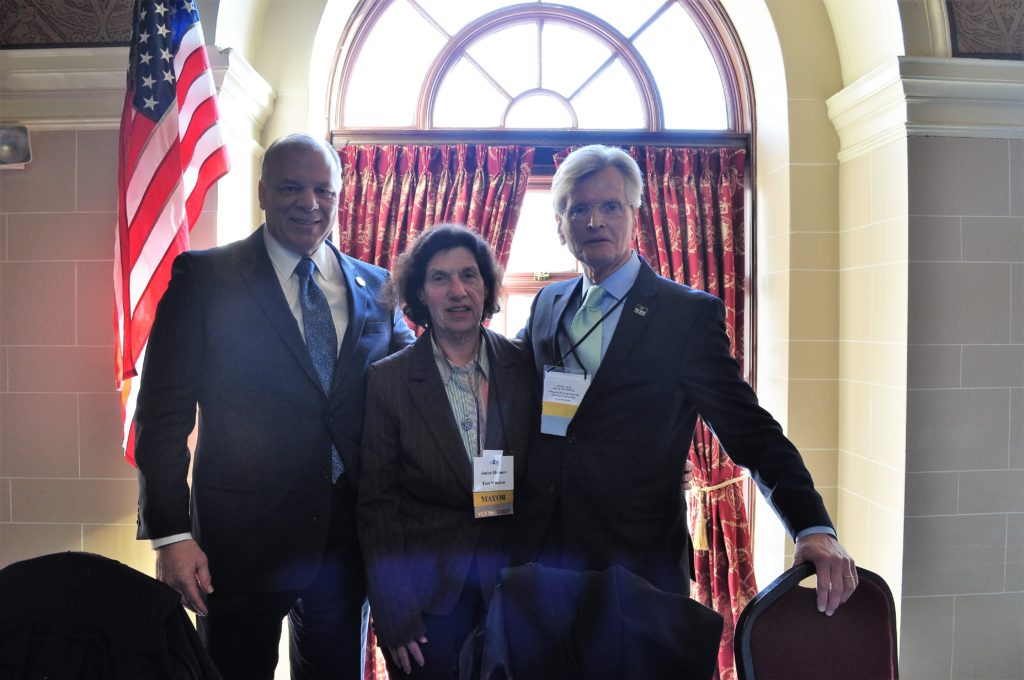Sweeney Speaks To Importance of Confronting Fiscal Problems At Mayors’ Forum

Sweeney Speaks To Importance of Confronting Fiscal Problems At Mayors’ Forum
Denying Problems Will Have Consequences At Local Level
Trenton – Speaking to a gathering of the state’s mayors in Trenton today, Senate President Steve Sweeney said that ignoring the structural fiscal problems that confront the state will only make the crisis worse with consequences that could cripple the abilities of government at all levels to function effectively and to serve the needs of the residents.
Joining with municipal and state officials at the New Jersey Conference of Mayor’s 2019 Winter Mayors Summit, Senator Sweeney said that denying the pending threat of mounting government costs will only allow the problems to multiply for municipalities and their residents.
“New Jersey is in a fiscal crisis that should not be ignored or denied,” said Senator Sweeney (D-Gloucester/Salem/ Cumberland). “Unless we make fundamental changes to government operations and bring reforms to built-in financial obligations, we won’t be able to afford to maintain the services and programs that we all value and we certainly won’t be able to make the investments needed to grow and prosper. We won’t be able to increase state aid to underfunded school districts to improve the quality of education, to hold down property taxes, pay for local services and contain the expense of health benefits at the local level.”
Senator Sweeney said that the work of the bi-partisan, blue ribbon Economic and Fiscal Policy Workgroup helped to identify the problems, quantify the costs and consequences, and develop workable solutions that are contained in the Path to Progress report are consequential for local government and local taxpayers.
“The reforms and recommendations proposed by the Workgroup provide a blueprint to achieve the operational and structural reforms needed to restore financial stability and affordability,” said Senator Sweeney. “For local government, the impact will be on property taxes, education costs, the expense of local services, pension payments and the spiraling costs of health benefits. All of these costs have an impact on property taxes.”
The recommendations include promoting shared services among county and municipal governments, facilitating the consolidation of K-4, K-6 and K-8 school districts into K-12 regional districts to improve the quality of education and promote efficiency, and capturing substantial savings on health benefits.
“Healthcare costs are out of control and a driving force behind local government spending and property tax increases,” said Senator Sweeney. “We need to redesign our health plan to better align it with the best private sector plans and other public sector plans around the country. Doing this will allow us to realize hundreds of millions in healthcare savings at the state and local levels.”
The bipartisan Economic and Fiscal Policy Workgroup held its initial organizational meeting on January 30, 2018. Over the course of six months, the Workgroup held meetings that included presentations by policy experts on critical issues and robust discussion of the pros and cons of potential solutions.









